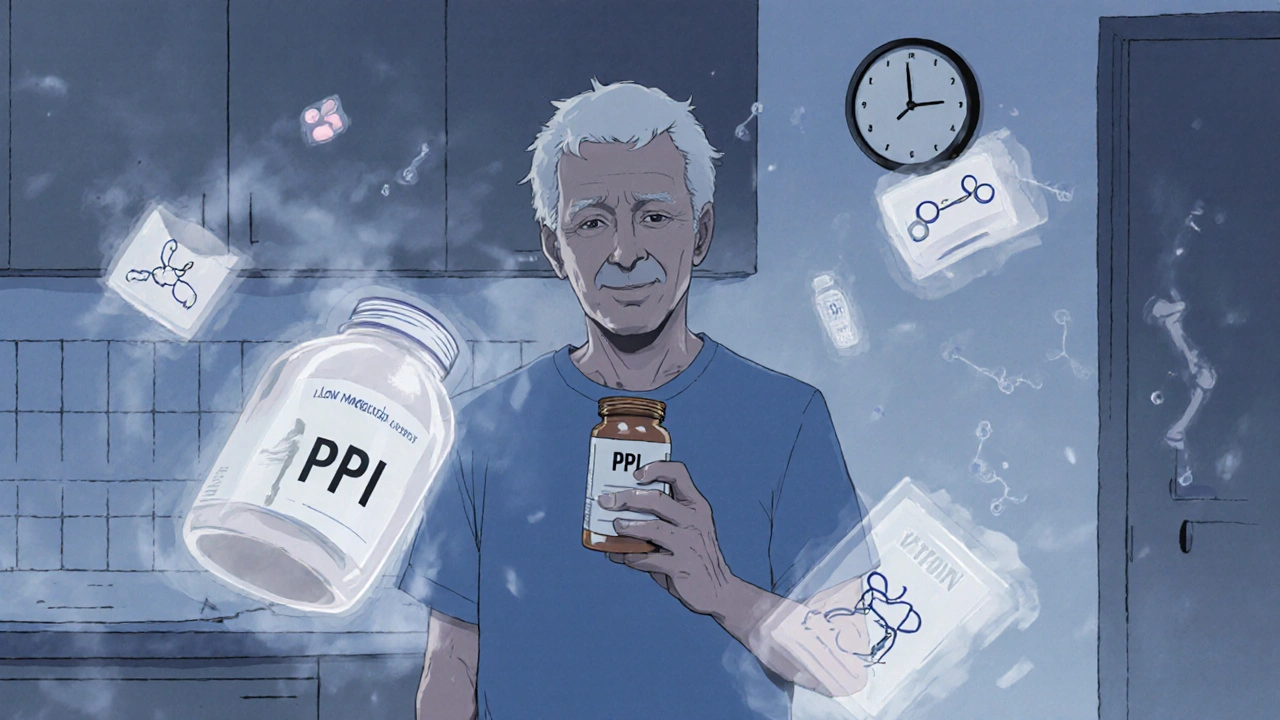PPI Risks: What You Need to Know About Long-Term Use and Side Effects
When you take a proton pump inhibitor, a class of drugs that reduce stomach acid production, commonly used for heartburn and GERD. Also known as PPIs, they’re among the most prescribed medications in the world—but their long-term use carries risks many patients don’t know about. Drugs like omeprazole, esomeprazole, and pantoprazole work well to calm acid reflux, but using them for months or years can quietly affect your bones, kidneys, and gut.
One of the biggest concerns is osteoporosis risk, a condition where bones become weak and break more easily. Studies show long-term PPI users have a higher chance of hip, wrist, and spine fractures—not because they’re old, but because these drugs interfere with calcium absorption. Your body needs acid to break down minerals, and when acid is suppressed too long, your bones pay the price. Then there’s gut health, the balance of bacteria in your digestive system. PPIs can throw that balance off, increasing your risk of C. diff infections, which cause severe diarrhea and can land you in the hospital. And it’s not just your stomach: research links chronic PPI use to a higher chance of kidney damage, even in people who never had kidney problems before.
These aren’t theoretical risks. Real-world data from large patient databases confirm them. People who take PPIs for over a year are more likely to develop low magnesium, anemia, and even pneumonia. And here’s the catch: many take them because they were told to "just try it for a few weeks," but then never stop. Doctors often don’t revisit the prescription, and patients don’t ask. The truth? Most people with occasional heartburn don’t need daily PPIs. Lifestyle changes—cutting caffeine, avoiding late meals, losing weight—often work better and safer.
That’s why the posts here focus on what really matters: the hidden side effects, how to tell if you’re at risk, and what alternatives actually work. You’ll find clear comparisons between PPIs and other treatments, real data on how often these risks show up, and practical steps to reduce your dependence. No fluff. No marketing. Just what you need to know to protect your health while managing your symptoms.

Proton Pump Inhibitors: Long-Term Risks and When to Stop
Proton pump inhibitors help with heartburn and ulcers, but long-term use can cause serious side effects like bone fractures, low magnesium, and B12 deficiency. Learn when to stop and how to do it safely.
